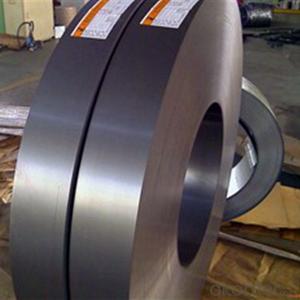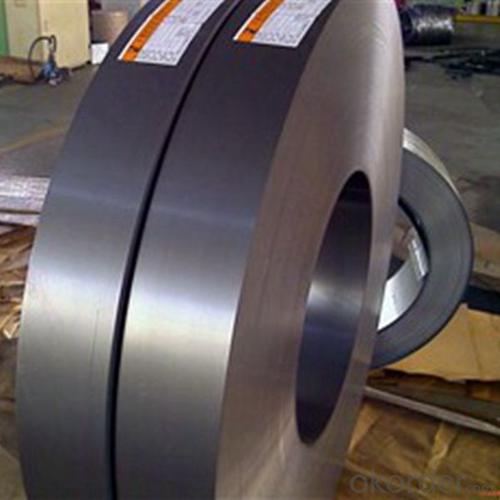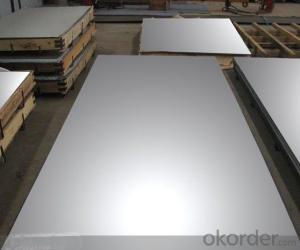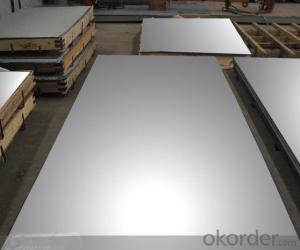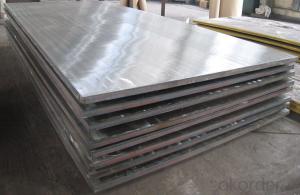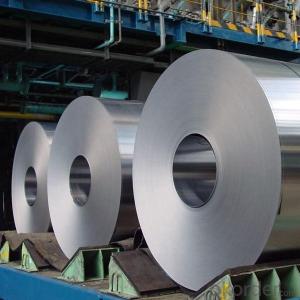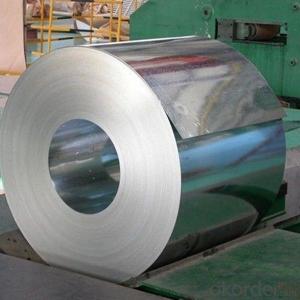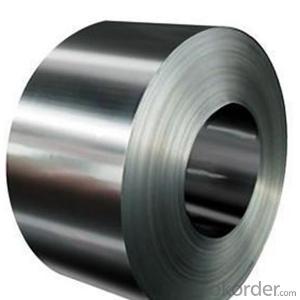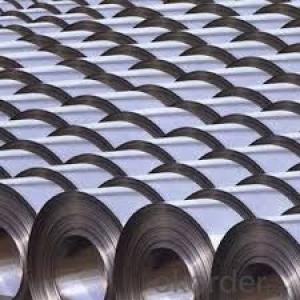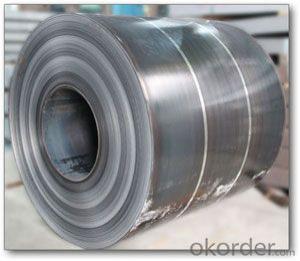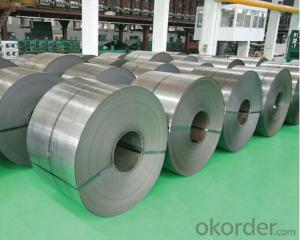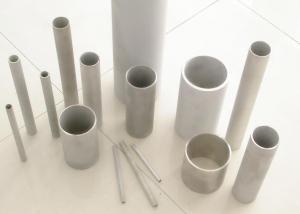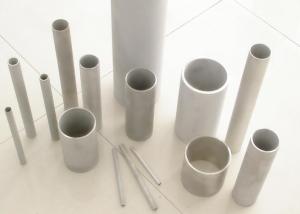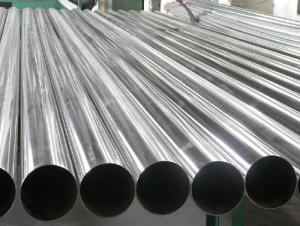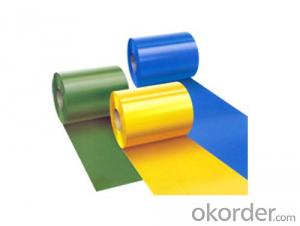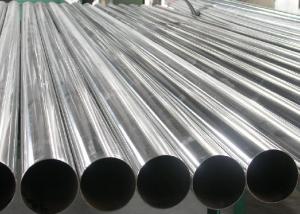Stainless Steel Hot Rolled Steel Coils NO.1 Finish Made in China
- Loading Port:
- Tianjin
- Payment Terms:
- TT OR LC
- Min Order Qty:
- 25 m.t.
- Supply Capability:
- 20000 m.t./month
OKorder Service Pledge
OKorder Financial Service
You Might Also Like
Specification
Products Description for Stainless Steel Coils/Sheets:
Product | stainless steel coils/plates/sheets | ||
Discharge Port | Any Port, China | ||
Size | Coils | Cold Rolled: | Thickness0.3-8mm,Width:280-2100mm |
Hot Rolled : | Thickness3-14mm,Width:650-2100mm | ||
Plates | Thickness2-80mm,Width:1500-3000mm | ||
Coil Weight | About 20 Tons | ||
Grade | 201,202,304/304L/304H,316/316L/316H,321/H,310S,409/L,430 etc. | ||
Technique | Hot Rolled/Cold Rolled | ||
Finish | 2B, BA, 2D, No1, No2, No4,NO.8,SB etc | ||
Edge | Mill Edge / Slitting Edge | ||
Package | In bundles, or as customer's requirement | ||
Place of Origin | Made in China | ||
MOQ | 20 Tons | ||
Description for Stainless Steel Coils/Sheets:
Prodcut:Stainless Steel Coil
Thinckness: 0.20mm-8.0mm
Width:1000mm, 1219mm(4 feet), 1250mm, 1500mm, 1524mm(5 feet),
1800mm, 2000mm, 2200mm, 2500mm,and customizable
Ni:0.8~1.2% Cu:1.4~1.5% Cr:14
Standard: ASTM, JIS, GB, BS, DIN etc
Grade: 200series&300series&400series
Surface finish: 2B, BA, 8K, 6K, Mirror Finished, No1, No2, No4, Hair Line with PVC
Manufacture technology: cold rolled/hot rolled
Thickness Tolerance: +/-0.1mm
Width Tolerance: +/-10mm
200 Seriers: 201,202
300 Seriers: 301, 304, 304L, 316L, 309, 310S,321
400 Seriers: 410, 410S, 409L,430
Detail picture for Stainless Steel Coils/Sheets
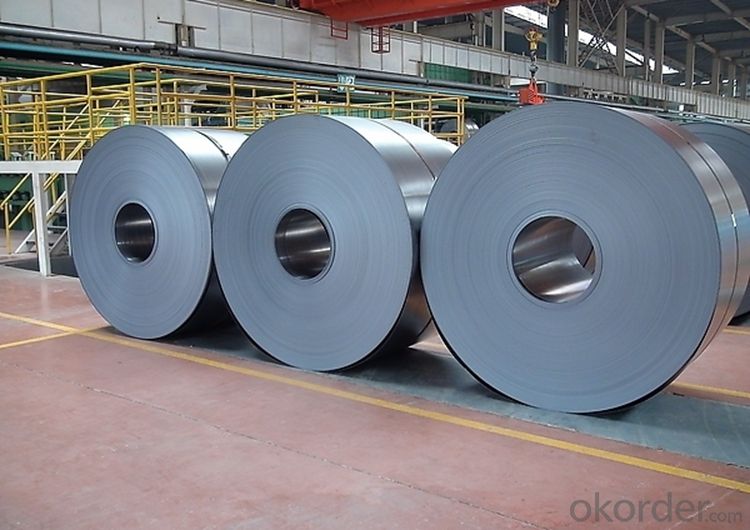
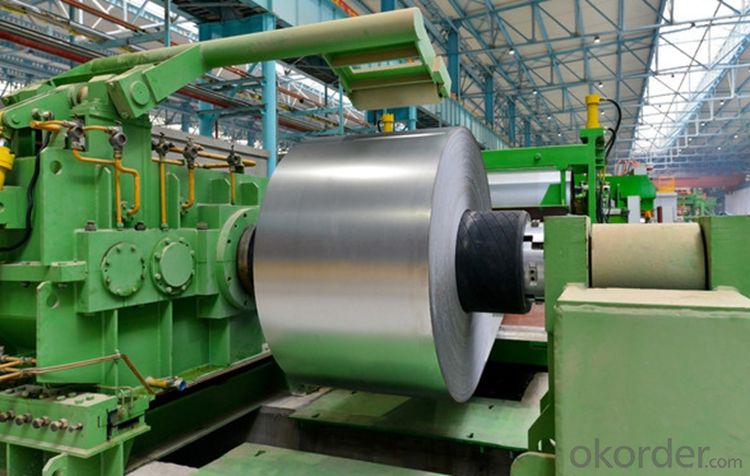
Packaging & Delivery for Stainless Steel Coils/Sheets:
Packaging Detail Standard export packing or following customer's demand
Delivery Time: Within 30-40 days after deposit or according to the order quantity
Export Markets for Stainless Steel Coils/Sheets:
Our target market is the international market. Every year we export most of products to countries like India, Pakistan, South Korea, Brazil, Australia, South Africa, Spain, Sri Lanka, Taiwan, Hong Kong, etc.
FAQ for Stainless Steel Coils/Sheets:
Q:What are the advantages of your company ?
A: We have many professionals, technical personnel, more competitive prices and best after-dales service than other stainless steel companies.
Q:Can you arrange the shipment ?
A: Sure we can help you with the shipment. We have forwarders who have cooperated with us for many years.
- Q: What does stainless steel sheet S2 stand for?
- Stainless steel sheet S2 stands for thickness 2mm
- Q: Are stainless steel sheets suitable for architectural mesh or screens?
- Yes, stainless steel sheets are indeed suitable for architectural mesh or screens. Stainless steel is a versatile and durable material that offers numerous advantages for architectural applications. It is resistant to corrosion, which is crucial for outdoor installations or areas with high humidity. This resistance ensures that the mesh or screens will maintain their structural integrity and aesthetic appeal over time. Additionally, stainless steel has a high strength-to-weight ratio, making it an ideal choice for architectural mesh or screens that require both durability and flexibility. It can be easily fabricated into different shapes and sizes, allowing for custom designs and variations. Stainless steel also offers a sleek and modern appearance, which enhances the overall aesthetic of architectural projects. Overall, stainless steel sheets are a reliable and suitable material for architectural mesh or screens due to their corrosion resistance, strength, versatility, and aesthetic appeal.
- Q: What are the benefits of using textured stainless steel sheets in retail displays?
- There are several benefits of using textured stainless steel sheets in retail displays. Firstly, textured stainless steel sheets can add a modern and sleek aesthetic to any retail space. The unique texture and reflective properties of stainless steel create an eye-catching display that can attract customers and enhance the overall appearance of the store. This can help in creating a memorable brand image and setting the retail space apart from competitors. Secondly, textured stainless steel sheets are highly durable and long-lasting. Retail displays often endure a significant amount of wear and tear due to constant handling and movement of products. Stainless steel, with its corrosion-resistant properties, can withstand these challenges and maintain its appearance even after prolonged use. This durability ensures that the retail displays remain visually appealing and do not require frequent replacements. Additionally, textured stainless steel sheets are easy to clean and maintain. In a retail setting, it is crucial to have displays that are presentable at all times. Stainless steel is known for its hygienic qualities, as it is resistant to stains, bacteria, and odors. This makes it easier to keep the displays clean and ensures a high level of hygiene in the store. Furthermore, textured stainless steel sheets are versatile and can be customized to fit various retail display needs. They can be easily cut, shaped, and formed into different sizes and designs, allowing for creative freedom in designing displays that align with the brand image and product theme. This versatility makes stainless steel sheets suitable for a wide range of retail environments, from high-end boutiques to industrial-style stores. Lastly, textured stainless steel sheets are environmentally friendly. Stainless steel is a sustainable material as it is 100% recyclable and can be repurposed without losing its quality. By incorporating stainless steel sheets into retail displays, businesses can contribute to reducing their environmental footprint and promote sustainability. In conclusion, the benefits of using textured stainless steel sheets in retail displays include their modern aesthetic, durability, ease of maintenance, versatility, and eco-friendliness. By utilizing these sheets, retailers can enhance their brand image, create visually appealing displays, and provide a positive shopping experience for their customers.
- Q: How do you remove adhesive residue from stainless steel sheets?
- To remove adhesive residue from stainless steel sheets, you can use various methods such as applying rubbing alcohol, vinegar, or a commercial adhesive remover. Start by soaking a cloth or paper towel in the chosen solution and gently rubbing the residue until it loosens. If needed, use a plastic scraper or your fingertips to carefully scrape off the remaining adhesive. Once all residue is removed, clean the stainless steel surface with warm soapy water and dry it thoroughly.
- Q: Can stainless steel sheets be used in marine environments?
- Yes, stainless steel sheets can be used in marine environments. Stainless steel is highly resistant to corrosion, making it suitable for marine applications where it will be exposed to saltwater and high humidity. It is commonly used in marine vessels, offshore platforms, and other structures that require durability and resistance to rust and corrosion.
- Q: Can stainless steel sheets be used for athletic equipment?
- Indeed, athletic equipment can make use of stainless steel sheets. Renowned for their durability, resistance to corrosion, and strength, stainless steel proves to be the perfect material for myriad athletic equipment purposes. Gym equipment, like weightlifting bars, dumbbells, and exercise benches, regularly employs stainless steel in its construction. Moreover, basketball hoops, soccer goalposts, and other outdoor sports equipment rely on stainless steel sheets for their ability to endure harsh weather conditions. Furthermore, stainless steel sheets offer versatility by allowing customization and fabrication into a range of shapes and sizes, catering to diverse athletic equipment requirements.
- Q: Stainless steel plate laser cutting how to charge?
- It's plasma cutting... In fact, if the process is not required, you can buy a hand grinder with cutting pieces.
- Q: Are stainless steel sheets suitable for food preparation surfaces?
- Yes, stainless steel sheets are highly suitable for food preparation surfaces. Stainless steel is a popular choice for kitchen countertops, cutting boards, and other food preparation surfaces due to its numerous beneficial properties. Firstly, stainless steel is non-porous, which means it does not absorb or retain odors, flavors, or bacteria. This makes it extremely hygienic and easy to clean, reducing the risk of cross-contamination. Additionally, stainless steel is resistant to corrosion, staining, and heat, making it durable and long-lasting. Its smooth surface also makes it ideal for rolling out dough or chopping ingredients. Furthermore, stainless steel is a non-reactive material, so it does not interact with acidic or alkaline foods, ensuring the taste and quality of the prepared food is not compromised. Overall, stainless steel sheets are an excellent choice for food preparation surfaces due to their cleanliness, durability, and food safety qualities.
- Q: How do you prevent chloride-induced corrosion in stainless steel sheets?
- One effective way to prevent chloride-induced corrosion in stainless steel sheets is by ensuring proper maintenance and cleaning. Regularly removing any accumulated chlorides and contaminants from the surface of the stainless steel sheets through thorough cleaning with mild detergents or specialized cleaning solutions can help minimize the risk of corrosion. Additionally, applying protective coatings or passivation treatments to the stainless steel sheets can create a barrier between the metal and chloride ions, further reducing the potential for corrosion.
- Q: Are stainless steel sheets resistant to radiation?
- Yes, stainless steel sheets have excellent resistance to radiation. The high levels of chromium present in stainless steel make it highly resistant to corrosion and oxidation caused by radiation exposure. This property makes stainless steel sheets a suitable choice for various applications in nuclear power plants, medical facilities, and other industries that involve exposure to radiation.
Send your message to us
Stainless Steel Hot Rolled Steel Coils NO.1 Finish Made in China
- Loading Port:
- Tianjin
- Payment Terms:
- TT OR LC
- Min Order Qty:
- 25 m.t.
- Supply Capability:
- 20000 m.t./month
OKorder Service Pledge
OKorder Financial Service
Similar products
Hot products
Hot Searches
Related keywords
